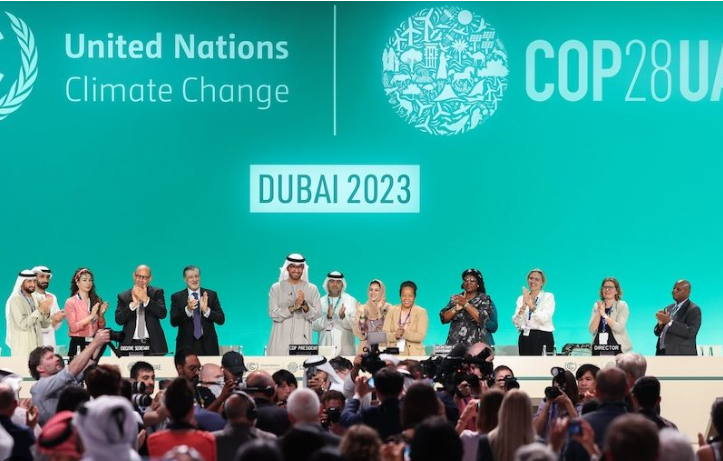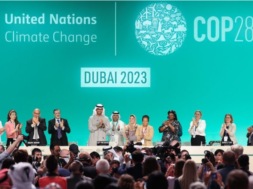
Environment: COP28 concludes with a call to de-fossilize fuel consumption
Virendra Pandit
New Delhi: As nations adopted a first-ever climate deal on fossil fuel, the 13-day-long COP28 Summit concluded in Dubai on Wednesday with a deal on transition away from petroleum-based energy.
UAE’s Sultan Al Jaber, who was the President of this year’s UN-sponsored Summit—the Conference of the Parties (COP) under the UN Framework Convention on Climate Change (UNFCCC)—brokered an agreement that was strong enough for the US and European Union on the need to dramatically curb fossil fuel use while keeping Saudi Arabia and other key oil producers on board, the media reported.
The participating nations, for the first time, committed to transition away from all fossil fuels.
The agreement urged countries to quickly shift energy systems away from fossil fuels in a just and orderly fashion. Under the deal, they called to contribute to a global transition effort, rather than being compelled to make that shift on their own.
“Together we have confronted the realities and sent the world in the right direction,” said Al Jaber, who’s also chief executive officer of Abu Dhabi National Oil Co.
Although the outcome fell short of the phase-out most countries wanted, it did break new ground: No previous COP text mentioned moving away from oil and gas, the fuels that have underpinned the global economy for decades.
It may, however, be a tall order. After a pledge to phase down coal in Glasgow two years ago, consumption continued to rise and the world remains very unlikely to limit warming to the Paris Agreement’s target of 1.5 degrees Celcius.
Nevertheless, the Dubai decision is a significant step on the road toward a low-carbon energy system. The text also included agreements to triple the deployment of renewable power and double the rate of efficiency gains by the end of the decade.
A separate COP28 agreement, reached earlier, makes operations a hard-fought fund for addressing the losses and damages of climate change.
“An agreement is only as good as its implementation. We are what we do, not what we say,” Al Jaber said. “We must take the steps necessary to turn this agreement into tangible actions.”
The last-minute deal is a diplomatic win for the UAE and Al Jaber, whose role at Adnoc made him a controversial choice to preside over this year’s talks.
But Al Jaber also used his presidency to bring the oil and gas industry firmly into the COP process. There were more representatives of fossil fuel companies than at any previous summit, drawing criticism from climate activists.
He forged a pact between more than 50 companies to reduce emissions from their operations. It said nothing about levels of oil and gas production, but a pledge to reduce pollution from methane – 80 times more dangerous than carbon dioxide – to near zero by the end of the decade could have a material impact on emissions, the reports said.
The Organization of the Petroleum Exporting Countries (OPEC) later sent a letter to members, asking them to lobby against any text that targets fossil fuels rather than emissions.
While the final language was watered down to reflect their concerns, ultimately the coalition of oil producers was left too isolated to resist.














